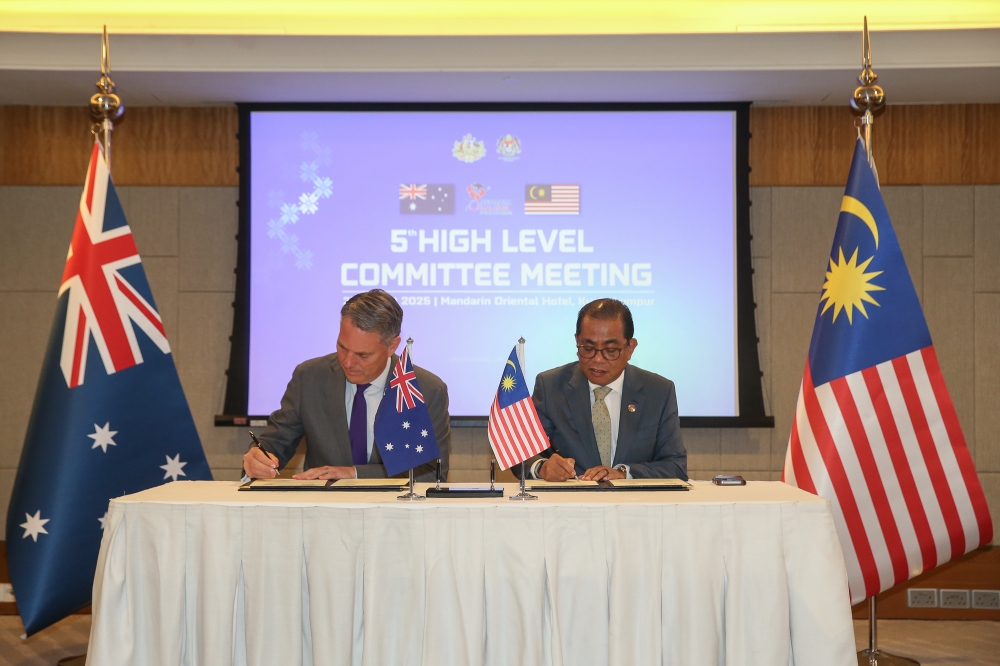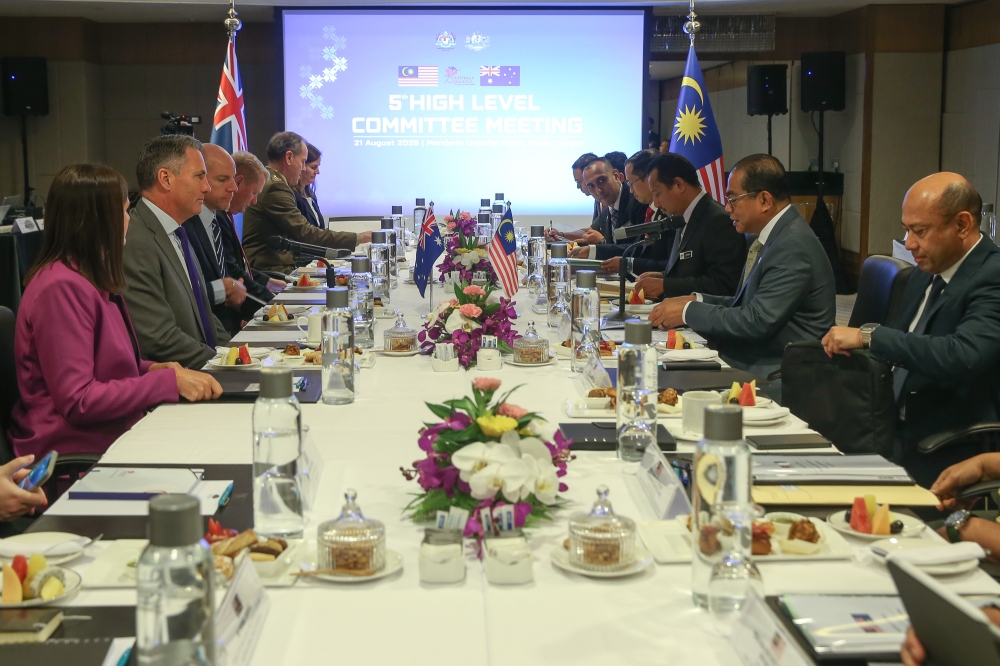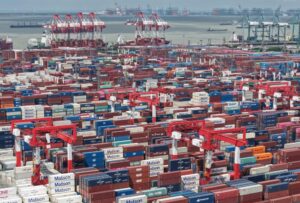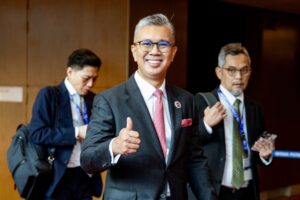KUALA LUMPUR, Aug 22 — Malaysia and Australia reaffirmed their long-standing defence partnership at the 5th Malaysia–Australia High-Level Committee (HLC) Meeting in Kuala Lumpur, co-chaired by Malaysia’s Defence Minister, Datuk Seri Mohamed Khaled Nordin, and Australia’s Deputy Prime Minister and Defence Minister, Richard Marles.
Both leaders underscored that the defence cooperation remains a cornerstone of the Comprehensive Strategic Partnership, grounded in shared history, trust, and a common commitment to regional stability with ASEAN at its centre.
This year marks several milestones in the relationship: 80 years since the end of World War II, when defence ties were first forged; 75 years since Australia’s assistance during the Malayan Emergency; and 70 years of Australia’s diplomatic presence in Malaysia.
Key outcomes of the meeting including the agreement to advance the Malaysia–Australia Security of Information Arrangement, with tangible progress expected by the next HLC.
The ministers also highlighted opportunities for stronger collaboration between defence industries, defence institutes, and veterans’ affairs departments, emphasising innovation, technology sharing, and capacity building.

(Left) Australia’s Deputy Prime Minister and Defence Minister Richard Marles and Malaysia’s Defence Minister Datuk Seri Mohamed Khaled Nordin sign a joint-statement at the 5th High Level Committee Meeting here. — Picture by Yusof Mat Isa
Looking ahead, they welcomed the 2025 Future Leaders’ Programme, to be hosted by Malaysia, which will bring together emerging defence leaders to strengthen mutual understanding of regional and global challenges.
The Malaysia–Australia Joint Defence Programme (MAJDP) was acknowledged as a vital pillar of bilateral engagement.
For more than three decades, it has underpinned education, training, and joint exercises between both nations’ armed forces.
Malaysia also expressed appreciation for Australia’s support in upgrading facilities at RMAF Base in Butterworth, including the runway refurbishment project funded by Australia, which is on track for completion in 2026.
Maritime security was also featured prominently in discussions. The ministers reaffirmed the importance of Operation Gateway, which for 45 years has contributed to regional security and stability.
They stressed the need to maintain a peaceful and stable maritime domain and noted the role of enhanced interoperability and information sharing in strengthening regional resilience.
Both sides reiterated strong support for ASEAN centrality and a rules-based regional order. They reaffirmed their commitment to the ASEAN Outlook on the Indo-Pacific (AOIP), the Zone of Peace, Freedom and Neutrality (ZOPFAN), and the Southeast Asia Nuclear Weapon-Free Zone Treaty (SEANWFZ).
Malaysia also welcomed Australia’s support as co-chair of the upcoming Maritime Cybersecurity Conference, held under the ASEAN Defence Ministers’ Meeting-Plus (ADMM-Plus) framework.

(Left) Australia’s Deputy Prime Minister and Defence Minister Richard Marles and Malaysia’s Defence Minister Datuk Seri Mohamed Khaled Nordin after signing a joint-statement at the 5th High Level Committee Meeting here. — Picture by Yusof Mat Isa
The Five Power Defence Arrangements (FPDA) were also highlighted as a key element of regional security.
The ministers looked forward to Malaysia hosting Exercise Bersama LIMA 2025, which will see Australia’s F-35A Lightning II fighter jets participate for the second consecutive year, as well as the FPDA VVIP Day to be hosted aboard the HMS Prince of Wales.
Turning to regional challenges, the ministers expressed concern over recent developments in the South China Sea, including unsafe actions at sea and in the air, as well as excessive maritime claims inconsistent with international law.
Both reaffirmed the importance of freedom of navigation and overflight in accordance with the 1982 United Nations Convention on the Law of the Sea (UNCLOS) and called for disputes to be resolved peacefully.
Both also acknowledged the evolving threats such as cybersecurity, terrorism, and violent extremism, pledging closer cooperation to address these challenges.






